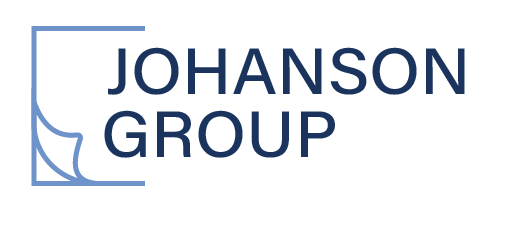Information Security Audits: An Overview of Different Types
Information security audits are a critical component of any successful security program. They help to identify potential risks, compliance issues, and vulnerabilities that can impact an organization's ability to protect its data and operations. A comprehensive audit should include different types of assessments, including a compliance audit. Compliance audits measure an organization's adherence to legal, regulatory, and industry standards. In this blog post, we'll explore the different types of audits that should be considered for a comprehensive information security audit.
What is an Information Security Audit?
An information security audit is a systematic examination and evaluation of an organization's information security policies, procedures, and controls. It aims to identify potential vulnerabilities, risks, and weaknesses in the organization's information security practices. This audit provides an in-depth analysis of the organization's security posture and helps identify areas where improvements can be made.
The purpose of an information security audit is to ensure that the organization's information assets are protected from unauthorized access, alteration, or destruction. It involves reviewing the organization's security policies, conducting interviews with key personnel, and assessing the effectiveness of the implemented security controls.
By conducting an information security audit, organizations can identify potential security gaps and take corrective actions to strengthen their overall security posture. This is especially important for CFOs, as financial risks and compliance issues can have a significant impact on an organization's financial health and stability.
Types of Information Security Audits
When conducting a comprehensive information security audit, it's important to consider the different types of audits that can provide a holistic assessment of your organization's security posture. These audits include internal audits, external audits, compliance audits, and risk assessments.
Internal audits are conducted by internal teams within the organization and focus on assessing the effectiveness of internal controls, policies, and procedures. These audits provide an opportunity to identify vulnerabilities or weaknesses in the organization's security practices and make necessary improvements.
External audits, on the other hand, are conducted by third-party experts who have no bias or vested interest in the organization. They provide an unbiased assessment of the organization's security practices and can identify blind spots that may have been overlooked.
Compliance audits measure an organization's adherence to legal, regulatory, and industry standards. These audits ensure that the organization is meeting all necessary requirements and help mitigate legal and financial risks associated with non-compliance.
Lastly, risk assessments are conducted to identify potential risks and vulnerabilities that may impact the organization's ability to protect its data and operations. These assessments help prioritize security investments and allocate resources effectively.
By incorporating these different types of audits into your information security program, you can gain a comprehensive understanding of your organization's security posture and make informed decisions to strengthen your overall security.
Internal Audits
Internal audits are a vital component of a comprehensive information security audit. These audits are conducted by internal teams within the organization and focus on assessing the effectiveness of internal controls, policies, and procedures. They provide a valuable opportunity to identify vulnerabilities or weaknesses in the organization's security practices and make necessary improvements.
One of the key advantages of internal audits is that they allow organizations to have a deep understanding of their own security posture. Internal auditors have a unique perspective as they are familiar with the organization's structure, processes, and systems. This allows them to identify potential risks and weaknesses that may have been overlooked by external auditors.
Internal audits also provide the opportunity for ongoing monitoring and improvement of security practices. By conducting regular internal audits, organizations can ensure that security controls and policies are being implemented effectively and are aligned with industry best practices.
External Audits
External audits are a crucial component of a comprehensive information security audit. These audits are conducted by third-party experts who have no bias or vested interest in the organization. They provide an unbiased assessment of the organization's security practices and can identify blind spots that may have been overlooked.
External audits are essential for organizations as they bring an objective perspective to the security assessment. These auditors have expertise in information security and can identify vulnerabilities and risks that internal teams may not have noticed. Their unbiased assessment helps organizations gain a holistic understanding of their security posture.
For CFOs, external audits are particularly valuable as they provide an independent validation of the organization's financial risks and compliance issues. By conducting external audits, CFOs can ensure accurate and transparent financial reporting, reducing the risk of non-compliance penalties and reputational damage.
External audits also help organizations demonstrate their commitment to security and compliance to stakeholders such as customers, investors, and regulatory bodies. It provides assurance that the organization is proactively managing its information security risks and complying with relevant regulations.
Overall, external audits play a critical role in enhancing an organization's information security program, strengthening its security posture, and instilling confidence among stakeholders.
Compliance Audits
Compliance audits are a critical component of a comprehensive information security audit. They ensure that an organization is meeting legal, regulatory, and industry standards. For CFOs, compliance audits are especially important as they help identify financial risks and ensure accurate financial reporting.
Compliance audits provide organizations with a thorough review of their practices, policies, and controls to ensure compliance with relevant regulations. This includes assessing data protection measures, access controls, incident response plans, and documentation of security policies.
By conducting compliance audits, organizations can proactively identify areas of non-compliance and take corrective actions to mitigate financial risks. This includes avoiding penalties, reputational damage, and potential legal ramifications.
Additionally, compliance audits demonstrate an organization's commitment to protecting sensitive information and maintaining regulatory compliance. This can help build trust and confidence among customers, investors, and regulatory bodies.
Risk Assessments
Risk assessments are a crucial component of a comprehensive information security audit. They help organizations identify potential risks and vulnerabilities that may impact their ability to protect their data and operations. By conducting risk assessments, organizations can prioritize security investments and allocate resources effectively.
For CFOs, risk assessments are particularly important as they provide insight into financial risks and compliance issues. By identifying potential risks, CFOs can take proactive measures to mitigate these risks and ensure accurate and timely financial reporting. Risk assessments also help CFOs demonstrate due diligence in managing financial risks and complying with relevant regulations.
To conduct effective risk assessments, organizations should consider factors such as the likelihood and impact of potential risks, existing security controls, and the organization's risk tolerance. By incorporating risk assessments into their information security program, organizations can stay ahead of emerging threats and protect their sensitive data.
Importance of Regular Audits:
Regular audits are crucial for maintaining the effectiveness of an organization's information security program. As threats evolve and new vulnerabilities emerge, regular audits help to ensure that security controls and practices are up to date and effective in mitigating risks.
Regular audits also provide an opportunity to identify any gaps or weaknesses in the organization's security posture. By conducting audits on a regular basis, organizations can identify potential vulnerabilities before they are exploited by malicious actors, reducing the risk of data breaches or other security incidents.
Additionally, regular audits help to demonstrate an organization's commitment to maintaining a strong security posture. By regularly assessing and improving security practices, organizations can instill confidence in customers, investors, and regulatory bodies that they are taking the necessary steps to protect sensitive information.
For CFOs, regular audits are particularly important as they help to identify and mitigate financial risks and compliance issues. By conducting regular audits, CFOs can ensure accurate and timely financial reporting, reducing the risk of non-compliance penalties and reputational damage.
Best Practices for Conducting Information Security Audits:
When it comes to conducting information security audits, there are some best practices that organizations should follow to ensure a thorough and effective assessment. These best practices can help organizations maximize the value of their audits and improve their overall security posture.
Firstly, it's important to establish clear objectives and scope for the audit. This includes defining what aspects of the organization's information security practices will be assessed and what specific goals the audit aims to achieve. By setting clear objectives, organizations can ensure that the audit focuses on the areas that are most critical to their security.
Secondly, organizations should conduct regular audits on a consistent basis. This helps to ensure that security controls and practices are up to date and effective in mitigating risks. Regular audits also provide an opportunity to identify any new vulnerabilities or weaknesses that may have emerged since the last audit.
Thirdly, organizations should involve key stakeholders in the audit process. This includes individuals from various departments such as IT, finance, legal, and compliance. By involving stakeholders from different areas of the organization, organizations can gain a comprehensive understanding of their security posture and ensure that all relevant areas are assessed.
Additionally, it's important to leverage the expertise of external auditors. External auditors bring an objective perspective and can identify blind spots that may have been overlooked by internal teams. Organizations should select auditors with relevant experience and expertise in information security to ensure a thorough and unbiased assessment.
Furthermore, organizations should prioritize the remediation of identified vulnerabilities and weaknesses. It's not enough to simply identify areas of improvement - organizations must take action to address these issues and strengthen their security controls. By prioritizing remediation efforts, organizations can effectively allocate resources and mitigate potential risks.
Lastly, organizations should ensure that audit findings are documented and communicated effectively. This includes preparing a comprehensive report that outlines the audit findings, recommendations, and action plans. The report should be shared with relevant stakeholders and used as a guide for implementing necessary improvements.
Cost Considerations for Conducting Information Security Audits:
As CFOs, it is important to consider the cost implications of conducting information security audits. While the benefits of these audits are undeniable, it is crucial to balance the costs associated with them. The cost of an information security audit can vary depending on factors such as the scope of the audit, the size of the organization, and the expertise required.
It is important to allocate a sufficient budget for information security audits as they play a vital role in protecting the organization's sensitive data and maintaining compliance with relevant regulations. The cost of audits should be viewed as an investment in the organization's security and overall financial health.
To minimize costs, organizations can consider leveraging internal resources and expertise where possible. This can help reduce the reliance on external auditors, which may be more costly. Additionally, organizations can prioritize the most critical areas of the audit to focus on, ensuring that resources are allocated effectively.
Conclusion
In today's ever-evolving digital landscape, information security audits are a vital tool for organizations to protect their sensitive data, maintain compliance with regulations, and mitigate potential risks. By conducting a comprehensive information security audit, organizations can gain a holistic understanding of their security posture and make informed decisions to strengthen their overall security.
Through various types of audits, including internal audits, external audits, compliance audits, and risk assessments, organizations can assess the effectiveness of their security controls, policies, and procedures. Internal audits provide an in-depth analysis of the organization's security practices, leveraging the internal team's knowledge and perspective. External audits bring an objective and unbiased assessment from third-party experts. Compliance audits ensure adherence to legal and industry standards, while risk assessments identify potential vulnerabilities and risks.
Regular audits are essential to keep up with evolving threats and maintain an effective security program. By following best practices, organizations can maximize the value of audits and improve their security posture. While cost considerations are important, the investment in information security audits is crucial for the organization's financial health and stability.




